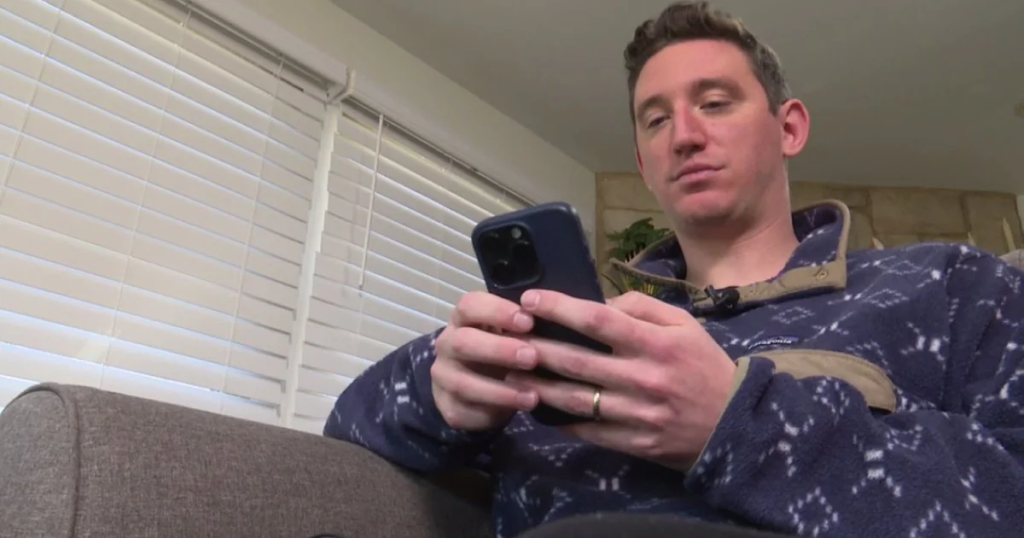Navy veteran’s bet mysteriously canceled after he thought he had secured a life-changing win on BetMGM. Mark Aiello, a U.S. Navy veteran and father from Chicago, was on the verge of collecting nearly $400,000 after placing a series of bets on an NBA game.
However, his excitement quickly turned into disappointment when the sports betting company voided his wagers, citing an “obvious error.” This controversial decision has sparked outrage and raised questions about the fairness of online sports betting.
A Life-Changing Win That Disappeared
On March 2, hours before the Chicago Bulls faced off against the Indiana Pacers, Mark Aiello placed four separate $500 bets on assists and rebounds for the game. The stakes were high, but the potential rewards were even greater.
His bets had long-shot odds, peaking at 350-1, meaning that if all six legs of his bets were successful, he would walk away with an astonishing $389,000.
To Aiello’s disbelief, everything went in his favor. When the final buzzer sounded, his bets had seemingly paid off, and he was overcome with excitement. Like any father, his first thoughts were about his young daughter and the opportunities his newfound fortune could provide, including a secure college education. It was a dream come true—until he checked his BetMGM app.
Aiello quickly noticed something strange. Instead of his account reflecting the massive win, all his bets were grayed out. Confused and concerned, he soon received a notification stating: “These wagers were voided due to an obvious error.”
The sports betting company claimed that “incorrect or inflated odds per the house rules” had led to the cancellation of his bets, leaving Aiello devastated and searching for answers.
The Controversy Behind BetMGM’s Decision
Aiello was baffled by BetMGM’s reasoning. According to him, his bets were available on the platform for at least seven hours before tipoff. Moreover, he mentioned that BetMGM traders had reviewed at least one of his bets before allowing him to place it. With this in mind, he couldn’t understand how such an error could be classified as “obvious” after so much time had passed.
“So I’m wondering where the obvious error was,” Aiello questioned. “They said because of their mistake, they could do whatever they wanted to.” His frustration stemmed from the fact that BetMGM seemingly had ample time to correct any mistake before accepting his bets, yet only chose to act once he had already won.

This incident has raised concerns about the practices of online sports betting companies. If sportsbooks can void bets after a customer wins, what protections exist for bettors? While it is understandable that mistakes happen, many believe that once a bet is accepted and confirmed, the company should be obligated to honor it.
Aiello’s case has now become an example of the potential pitfalls of online gambling, where companies seemingly have unchecked power over their users’ winnings. BetMGM and other sports betting companies operating in Illinois are required to report “obvious errors” to the Illinois Gaming Board if a customer files a complaint.
Aiello has since taken his case to state regulators, who will now investigate whether BetMGM’s decision was justified or if the company unfairly voided his rightful winnings. As the investigation unfolds, many sports bettors are watching closely, concerned about what this case could mean for the future of fair play in the industry.
The Larger Implications for Online Sports Betting
Aiello’s story is not just about one man’s lost fortune—it highlights the broader issue of transparency and accountability in online sports betting. With the rapid expansion of legalized sports gambling across the United States, more and more bettors are relying on digital platforms like BetMGM. However, cases like this raise important questions about whether these platforms are operating in good faith.
One of the main concerns is the lack of oversight in cases where sportsbooks claim “obvious errors.” If a company can retroactively void bets at will, it undermines the integrity of sports betting and leaves players vulnerable.
Industry experts argue that there should be clearer regulations to ensure that once a bet is placed and accepted, it cannot be canceled unless fraud or manipulation is involved.

Moreover, Aiello’s case has ignited discussions about the need for stronger consumer protections. Some have suggested that sportsbooks should be required to set aside funds to honor bets placed under their own posted odds, even if a mistake is discovered later.
Others argue that companies should be penalized for failing to catch errors before allowing bets to be placed. Without these protections, bettors may feel that the system is rigged against them, with sportsbooks having the ability to pick and choose which bets to honor.
For Aiello, the fight for his winnings is not just about the money—it’s about holding a major corporation accountable for its actions. As he waits for the Illinois Gaming Board’s ruling, his case has become a symbol of the challenges facing modern sports betting.
Whether he ultimately recovers his lost winnings or not, his experience serves as a cautionary tale for others looking to test their luck in the world of online gambling.
As sports betting continues to grow in popularity, this case could set an important precedent for how disputes are handled in the future. The outcome will not only impact Aiello but also shape the trust and confidence that bettors place in sportsbooks nationwide.
For now, Aiello remains hopeful that regulators will see the injustice in BetMGM’s actions and ensure that players like him are treated fairly in the future.

